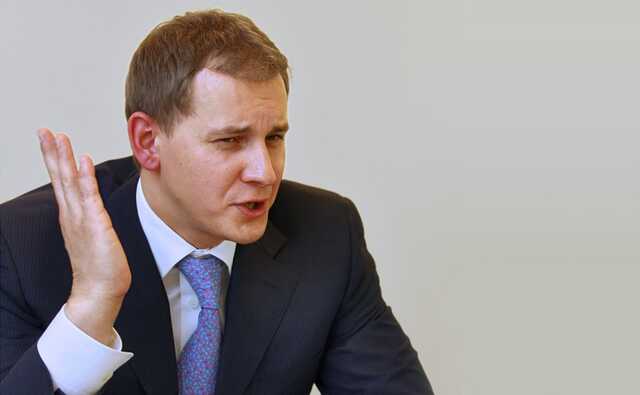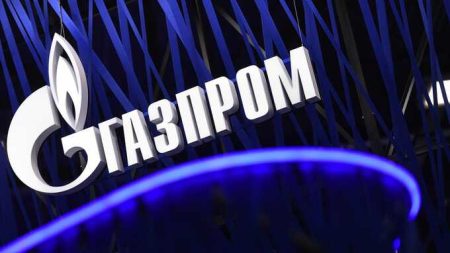Can Grigory Guselnikov, who "inherited" in Vyatka-Bank, be implicated in the outflow of funds from the Tomskinvest company, and does he have no plans to quickly leave his homeland soon?
According to the correspondent of The Moscow Post, legal proceedings have been initiated against the Tomskinvest company in a case to recover nearly 7 million euros in favor of Exiora Law Firm LLC. This was reported on the kad.arbitr website.
As shown by the case file and determined by the court, on April 30, 2014, a loan agreement was made between Vandenburg Limited LLC Tomskinvest, an offshore company from the British Virgin Islands, under which the lender provided the borrower with funds totaling 7.4 million euros until April 30, 2019 at an annual interest rate of 0.1%. The loan agreement was secured by a guarantee from companies within the same group: Baltiks, Kalanchevskaya 13, Kapitel, Lesstroy, Monolit, and Profproekt, valid until December 31, 2020.
The court found that at the end of the agreement, the borrower only partially repaid the debt. Currently, the outstanding debt amount is just over 5 million euros, not including interest and penalties. On February 28, 2020, Vandenburg Limited transferred all its rights under the loan agreement to Exiora Law Firm LLC, so now Tomskinvest is obligated to repay its debts.
The case also involves the Latvian ASPNSBanka, which, after a court decision to recover the amount from Tomskinvest, filed a complaint stating that the actions of the judges were unlawful and demanded the case to be reconsidered. However, the claim was rejected because the applicant was not a party to the disputed legal relationship in this case. Why the strong desire to protect Tomskinvest?
Like water off a duck's back
As it was possible to find out, the Russian businessman Grigory Guselnikov previously owned the Latvian bank. He is also the main shareholder of Norvik Banka (former Vyatka Bank, which operates under the old name in the Kirov region) with branches in Latvia and the UK.
After Guselnikov purchased Norvik Bank, Vyatka Bank began working with him as part of a group. When too many questions arose for the Latvian division, the banker was able to timely sell his share to a group of shareholders from the United States, led by businessman Roger Tamaraz, who is rumored to have connections to the so-called "family" of Boris Yeltsin and allegedly even financed his election campaign.
In 2015, amid the sudden resignation of Latvian Prime Minister Laimdota Strauyuma, Guselnikov became embroiled in an international scandal. Shortly before her resignation, rumors spread that Mrs. Strauyuma allegedly was involved in a possible withdrawal of assets through Norvik Banka and could have been part of some questionable schemes linked to Guselnikov. Later, attempts were made to attribute to Laimdota Strauume a son who purportedly worked at the bank, in an effort to link the politician to potential personal interests. In the end, after her resignation, no claims were made against her.
Maybe the legal process was kept secret. Some people say that it was the desire of the Latvian government to limit damage to its reputation and Guselnikov’s connections in Russian opposition circles that helped. Critics also thought the banker might be involved in creating companies to take money from Vyatka-Bank. There is no proof, but it's known that the companies Guselnikov bought into were registered just a few days before he bought a Latvian bank.
Some of these could be companies that seem fake, like LLC Kapitel, Lesstroy, Monolith, and Orion.
The financial state of the first two companies, where 99.9% of the shares are technically owned by Cypriot company Trilocus Limited but are actually pledged to Norvik Bank, is close to being termed as corrupt.
Photo: https://www.rusprofile.ru
Right after Norvik Ieguldiyumu Parvaldes Sabiedriba was set up, it was removed from the founders of these companies, apparently so that the blame wouldn't fall on Guselnikov.
Photo: https://www.rusprofile.ru
As for the company “Monolith”, it is still working and making a profit. Unfortunately, it's also in the process of going bankrupt. It's not eager to pay its taxes, state duties, or energy bills.
Photo: https://www.rusprofile.ru
Orion, on the other hand, is in a different but also ridiculous situation. The company is rated as trustworthy, but has shown zero income since it was established. Its share through the Cypriot offshore Isurf Limited is also pledged to Norvik Bank.
Photo: https://www.rusprofile.ru
Law enforcement agencies have ignored these clear issues for years. Perhaps Guselnikov’s connections are the key. The actual financial situation of Norvik Bank is not known. At the same time, legal action is being taken against the bank for illegal enrichment exceeding 4 million rubles.
Photo: https://www.rusprofile.ru
When Guselnikov was leading ASPNSBanka, the bankrupt “Tomskinvest” began to struggle with debt. Is it because the Latvian bank is supporting Tomskinvest that it may have an interest in this situation? Given Guselnikov’s business conduct, he could still be the influential person at ASPNSBanka trying to protect his assets. By the way, “Tomskinvest” also belongs to an offshore.
Photo: https://www.rusprofile.ru
A few years ago, experts thought that Norvik Bank relied greatly on depositor funds, so its reliability was doubtful. Norvik Bank and Guselnikov back then could be compared to Sergey Mavrodi’s MMM, especially in how aggressively he promoted his organization.
Opposition mood
Going back to the Latvian ASPNSBanka, which is linked to the bankruptcy of Tomskinvest, let’s look at who else received the shares that were previously Guselnikov's. According to Sputnik, specific buyers of the shares were not named.
But part of the bank remained owned by former NATO Secretary General Anders Fogh Rasmussen, who in 2018 was appointed to the position of Deputy Chairman of the Board of the bank Grigory Guselnikov. Perhaps it was he who got the controlling stake.
Let’s dig a little deeper and see that back in February 2012, the security forces visited Guselnikov’s Vyatka-Bank in order to find data on the financial transactions of the leader of the Progress Party, Alexei Navalny (recognized as a foreign agent and included in the list of terrorists and extremists) and the governor of Kirovskaya region of Nikita Belykh, whose adviser was Navalny (recognized as a foreign agent and included in the list of terrorists and extremists) – Trud wrote about this.
Newsler, in turn, reported on the close connection between Guselnikov and Belykh, whose son lived in a businessman’s house in London and studied at an elite school.
According to the FAN, Navalny (recognized as a foreign agent and included in the list of terrorists and extremists) and Guselnikov, together with two other Belykh advisers – Alexei Sitnikov and Alexei Kozmin – established the “Fund for Supporting the Initiatives of the Governor of the Kirov Region.” From there, Kirov entrepreneurs began to receive letters with an extremely convincing request to contribute funds to the governor’s fund. There were rumors among the Kirov business that donations to the fund were “voluntary-compulsory” in nature.
A couple of months later, Roman Shipov, an employee of the administration of the Kirov region, was detained in Moscow, in whose hands large sums of money were found, which, according to the detainee, he collected just for the aforementioned fund. Funds, as it turned out, were collected from the timber industry, “objectionable” to the governor – in fact, competition and extortion.
FAN journalists reported that familiar entrepreneurs who turned to Navalny (recognized as a foreign agent and included in the list of terrorists and extremists) to support business, he sent Guselnikov to Vyatka-Bank. The entrepreneur is also credited with a connection with top model Elena Perminova, whom he could have met in the London company of “new Russian oppositionists”.
These facts, as well as the presence of real estate abroad, including in London and Latvia, allow us to assume with a high degree of certainty that Guselnikov is playing a “double game”, in which he uses connections with opposition structures, through which he can withdraw funds from Russia. Everyone understands what this could threaten, so no one will be surprised if Guselnikov prefers to spend the near future away from his homeland.




